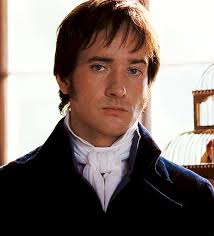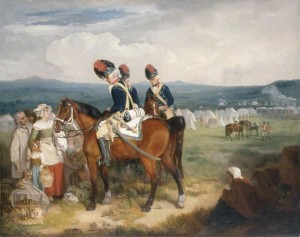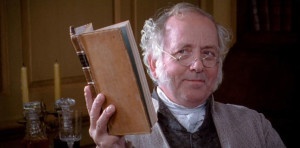We’re in week 3 of our ‘Jane in January’ event and hope you are enjoying our special focus on “Pride and Prejudice.”
“If one could but go to Brighton!” observes Mrs. Bennet in Pride and Prejudice, “A little sea-bathing would set me up for ever.” In my novel Mr. Darcy’s Challenge, she has an opportunity to do so, though not under the best of circumstances (Lydia has gone missing). Not surprisingly, despite Mrs. Bennet’s anxiety about her daughter, she is not about to give up the chance of a lifetime to experience some sea-dipping.
In Pride and Prejudice, Lydia’s trip to Brighton plays a pivotal role. The basic themes of the novel – pride and prejudice, which are two sides of the same coin in many ways – are centered on the fact that people are limited by one-sided perceptions of the world. These perceptions, moreover, are flawed. In a few skilled strokes of the quill, Jane illuminates her characters’ motivations while at the same time showing how each one, in very different ways, is responsible for the disastrous consequences of Lydia’s trip to Brighton.
Lydia
It comes as no surprise that Lydia’s whole world revolves around the officers, and who can blame her, really? She is fifteen, and in a small village like Meryton there are few opportunities to meet young men. For her, the departure of the militia is nothing short of a disaster – so much so that it is almost one of the first things she mentions when she goes to meet Lizzy and Jane at the inn after they return from Hunsford/London.
“They are going to be encamped near Brighton; and I do so want papa to take us all there for the summer! It would be such a delicious scheme, and I dare say would hardly cost anything at all. Mamma would like to go too of all things! Only think what a miserable summer else we shall have!”
Jane Austen provides us with an insight into the workings of Lydia’s mind – and indeed into the fantasies of many a hormone-driven teenager, revealing her vanity as well as her hopes and dreams.
“She saw, with the creative eye of fancy, the streets of that gay bathing pl
ace covered with officers. She saw herself the object of attention to tens and to scores of them at present unknown. She saw all the glories of the camp … and, to complete the view, she saw herself seated beneath a tent, tenderly flirting with at least six officers at once.”
Jane Austen is careful to show us that, behind that extraordinary vision, however, there is a certain insecurity. It is no coincidence that after she initially breaks the news of the Brighton plans to Lizzy and Jane, she brings up the subject of marriage, showing that to her, flirting is not just an idle pursuit.
“Have you seen any pleasant men? Have you had any flirting? I was in great hopes that one of you would have got a husband before you came back. Jane will be quite an old maid soon, I declare. She is almost three-and-twenty! Lord, how ashamed I should be of not being married before three-and-twenty!… Lord! how I should like to be married before any of you!”
Under Lydia’s flighty silliness, there is in fact a sense of determination, and she accomplishes what she is determined to do. Unlike her sisters, she will not come back without a husband and she will be married before them. Her perspective is flawed, however, because she does not care how she achieves this goal.
Mrs. Bennet
Mrs. Bennet is most adamant about having her daughter go to Brighton. There is a certain wistfulness in her desire to send Lydia to the coast that shows how much she identifies with her youngest daughter. You could almost feel sorry for her, in fact. It is clear that she is saddled with a husband who has little interest in travelling or doing anything exciting. He doesn’t even like to go to London.
“Lydia’s going to Brighton was all that consoled her for the melancholy conviction of her husband’s never intending to go there himself.”
Evidently Mrs. Bennet feels she has missed out on her own youth. Her lively spirits have been given no outlet when she is married to a man who spends as much time as possible in his library. It is as if Mrs. Bennet has chosen to live vicariously through her daughter. This need to see her daughter enjoy life makes her blind to the dangers of sending her away with the equally giddy Mrs. Forster.
Mrs. Bennet was diffuse in her good wishes for the felicity of her daughter, and impressive in her injunctions that she would not miss the opportunity of enjoying herself as much as possible — advice which there was every reason to believe would be attended to.
Mr. Bennet
Of the four characters I’m dealing with, Mr. Bennet’s motivation is perhaps the most flawed. In his avoidance of conflict at all costs, he is unwilling to take a firm stance and is so good at side-stepping the issue that even Lizzy is taken in by him.
“Elizabeth saw directly that her father had not the smallest intention of yielding; but his answers were at the same time so vague and equivocal, that her mother, though often disheartened, had never yet despaired of succeeding at last.”
Lizzy believes she understands her father. She thinks he sees things the way she does, but she is proven wrong. The moment the Fosters offer to take Lydia with them, Mr. Bennet is more than happy to yield, as long as it doesn’t require any effort on his part. His initial refusal to allow Lydia to go doesn’t stem from concern for Lydia. It stems from his reluctance to travel. “We shall have no peace at Longbourn if Lydia does not go to Brighton. Let her go, then,” he says.
Lizzy
Apparently, Lizzy is the only one that shows any alarm at the possibility of sending Lydia off unaccompanied. She feels it so strongly, that she is willing to “betray” her sister by arguing against it.
…detestable as such a step must make her, were it known, she could not help secretly advising her father not to let her go.
Since we identity with Lizzy, it is easy to think that at least she was being sensible. However, Jane Austen doesn’t let her main character off the hook. She very quickly reveals that Lizzy has her own self-interest in mind, and Mr. Bennet is quick to seize on that.
“If you were aware,” said Elizabeth, “of the very great disadvantage to us all which must arise from the public notice of Lydia’s unguarded and imprudent manner — nay, which has already arisen from it, I am sure you would judge differently in the affair.”
“Already arisen?” repeated Mr. Bennet. “What, has she frightened away some of your lovers? Poor little Lizzy! But do not be cast down. Such squeamish youths as cannot bear to be connected with a little absurdity are not worth a regret. Come, let me see the list of the pitiful fellows who have been kept aloof by Lydia’s folly.”
 Elizabeth’s attempt to persuade her father not to send Lydia fails precisely because it is centered on herself. She is thinking of Darcy and of what he would think of her. This becomes even more complicated when it comes to not mentioning what she knows about Wickham to her father. Again, she shows her motivation is not primarily concern for Lydia. After all, knowing what she knows about Wickham, and knowing that Lydia is bound to meet him, the least she could have done is warn Lydia not to trust him (even if it fell on deaf ears).
Elizabeth’s attempt to persuade her father not to send Lydia fails precisely because it is centered on herself. She is thinking of Darcy and of what he would think of her. This becomes even more complicated when it comes to not mentioning what she knows about Wickham to her father. Again, she shows her motivation is not primarily concern for Lydia. After all, knowing what she knows about Wickham, and knowing that Lydia is bound to meet him, the least she could have done is warn Lydia not to trust him (even if it fell on deaf ears).
Having revealed the flaws inherent in the Bennet’s perception of Lydia’s trip to Brighton and what it means, Jane Austen leaves us with a sense of inevitability. No one person alone is to blame for Lydia’s disastrous choice. Everyone is. Consequently, the Bennets stare ruin in the face.
Thank heavens for Mr. Darcy, who sails right in and makes everything alright. What would we have done without him?





37 comments
Skip to comment form
Thank you for pointing out the fallacies that led the Bennets to ruin. Darcy had pegged the family correctly. Thank goodness his love 5 Elizabeth wins out and saves the family.
Author
Patty — so you see things from Darcy’s point of view? It’s true that Mr. Bennet’s statement shows an disturbing lack of concern for his daughters’ reputations. “Such squeamish youths as cannot bear to be connected with a little absurdity are not worth a regret.” This is Regency England and his daughters don’t have large dowries. Thank you for this insight.
First, my sincerest thanks for the magnet I won during week one. It arrived this morning and now has a place of honor on my refrigerator. Gracias Maria Grace. It is beautiful.
Who of us could be surprised at Lydia’s fall? You could see it coming like a train wreck. Monica, you are right that these four Bennet’s had guilt – some more than others. Yet, it allowed our couple to come to terms with all that had come before and grow together. Thank you, Jane Austen for such insight into this dysfunctional/typical family. And, thank you, Monica, for your insight as well.
Author
Joy — I’m happy to hear the magnet is comfortably settled on your refrigerator.
Yes, Jane Austen is brilliant at showing family dynamics. I always wonder how much Jane Austen’s novels reflect her own family. I wish we knew more about them than we do from the few letters that have survived.
Great character analysis.
Author
Thanks, Kathy.
That’s interesting, Monica! I think I have focused to hard on the inevitable fate that I didn’t pause to think about individual culpability. Well not beyond the obvious of Lydia and Mrs. B’s screeches and Mr. B wanting his peace and quiet. I’ve always thought that Lydia and Lizzy were a lot alike in their liveliness, but one got the benefit of dad’s attention and the other mom’s and then there is Mrs. B seeing herself in Lydia. With Mr. B, I’m not sure if he felt love for his children or not, but he sure comes across as indifferent.
There was no real concern for Lydia being near Wickham like there should have been even if no one saw her as a target for marriage. I think that is where the err in judgment was made with Lizzy. She only knew of him going after young girls with fortunes or herself to share gossip. It doesn’t seem to occur to her that he would just use and discard her sister. She only saw that Lydia would be the menace the way she was chasing officers and not as the victim.
Interesting discussion, thanks Monica!
Author
A pleasure, Sophia Rose. I love your perspective on Lydia and Lizzy. How very intriguing to think that they are similar but the parenting is what makes the difference. I have to give that one careful consideration.
I enjoy blogs such as this because they open my eyes to new perspectives with every new post! I can never read P&P without learning something new, thanks to you lovely ladies!
Author
That’s what I love about Jane Austen. There are so many subtleties to her writing, aren’t there? Glad it was useful, Wendy.
How interesting to think of all the ways in which everyone is responsible for what happens to Lydia. Indeed, what would they have done without Darcy? I have long thought that Lydia and her parents were at fault, but did not think about Lizzy’s role at all! Yet, she is the one with the most information and the most sense – surely, she could have done something had she really tried…
Author
Julie — it’s fascinating, isn’t it? Sometimes I think Jane Austen plays games with the readers 🙂
A very educational post, Monica. I always felt 3 of the 4 were culpable in the near disastrous ruin that almost befell the Bennet family. Thank goodness for Mr. Darcy. I never truly considered that Lizzy was really culpable as well. I realized she never let loose information about Wickham, She could’ve said something to her father, but, if she was vague and didn’t use names, would her father have taken her seriously or made a joke out of her being ‘jealous’? Thank you for sharing the information with us.
Author
Deborah, it’s significant that she never says anything. Was she afraid of being laughed at? Her father makes a joke of her anyway.
I too never thought of Lizzy as having responsibility for Lydia’s ruin. Thinking on it, Lizzy never gave too much thought to Lydia until she did something outrageous or until her actions directly affected herself. Today we would say Lydia was looking for the attention she did not get from her sisters by being drawing attention to herself.
Your details make me want to go back to the original and find all those insights. Haven’t read P&P in awhile but I think it is time to do so. Thanks Monica, you have sent me back to the books.
Author
Delighted to hear it, Maggie. I love re-reading P&P, and I always discover something new. It’s the kind of book which you can never really “master” — something continues to elude you. Hope you enjoy the re-read!
This is interesting – definitely food for thought! I never really thought about Lizzy’s motivations behind the situation. Jane must’ve gotten her optimism from Mr Bennet, since he didn’t really believe that Lydia would get herself into trouble, or that a man like Wickham might be interested in something other than marriage.
Author
Nice one, Monica P. I never thought of comparing Mr. Bennet with Jane, because to me he usually comes across as cynical, but it *is* possible to see him as a careless, happy-go-lucky person. The film versions don’t present him that way, but you could make a case for it, I think.
I don’t know that I’d see him as happy go lucky but I always thought he must be overly trusting or naive to think that Lydia’s small dowry would keep some men from messing with her. Maybe because Lydia was so intent on marriage, he didn’t think she’d go about it in such a secret way? I don’t know. Always something new to think about with P&P!
Author
There is — always!
Great comparison! The Bennet’s are definitely a disfunctional bunch.Lol. Elizabeth is lucky Darcy came along.
Author
After thinking about this, I appreciate Darcy even more than I did before, BeckyC. The Bennets were in big trouble, and the audience of the day would be more aware of it than we are. Darcy’s big gesture was amazingly generous, both financially and emotionally.
I think you made me realize something I like to look for in the fan fiction, and that’s whether the Bennet parents really ever truly appreciated how their Darcy son-in-law really saved them all, and if they were ever truly grateful (and learned to be a little more responsible towards their families in their lives afterwards). From what little is said in P&P, it doesn’t sound like the parents really change, but Kitty does change because of the influence of her excellent sisters. Thanks for the post!
Author
I agree, Kathy. I don’t know if Mrs. Bennet was ever told, but certainly Mr. Bennet knew about Darcy’s grand gesture. His response was typical:
“And so, Darcy did everything — made up the match, gave the money, paid the fellow’s debts, and got him his commission! So much the better. It will save me a world of trouble and economy. Had it been your uncle’s doing, I must and would have paid him; but these violent young lovers carry everything their own way. I shall offer to pay him to-morrow: he will rant and storm about his love for you, and there will be an end of the matter.”
So much for appreciation!
Mr Bennet’s reaction always makes me want to slap him! Grrrr….
Author
I’m with you a hundred percent, June!!
Very interesting post, with the four characters’ perspectives. IMHO, I always thought Lizzy talked to her father about how Lydia’s trip would affect Lizzy, because Lizzy didn’t believe her father would exert himself for Lydia’s sake. So she was trying to appeal to her father’s love for her and Jane, for the whole family. But I may be over-thinking things.
Author
I like your explanation, June. I don’t think you’re overthinking things. It’s possible she was trying to be strategic. Sadly, Lizzy once again doesn’t seem to understand that, even if he is attached to her more than any of the others, Mr. Bennet still won’t step out of his comfort zone for any of them and it backfires. Don’t you think his response is quite condescending? “What, has she frightened away some of your lovers? Poor little Lizzy!”
Grrrrr…. once again, I want to slap Mr Bennet!
Monica, do you think Lizzy had any respect for her father by the end of the book?
Author
I don’t blame you, June! I want to shake him and tell him to live in the real world.
Good question!
That’s why I love Jane, she doesn’t even let Lizzy off the hook. She had her own motivations for speaking against Lydia’s trip to Brighton. I wonder how Darcy and Lizzy would’ve gotten together if Lydia didn’t run off with Wickham…
Well, it seemed they were on the verge of getting together when Lydia did run off. Perhaps Darcy needed something dramatic to show him he should DO something, and then he couldn’t deny that he’d done it out of love for Lizzy… He does say later that, upon hearing that Lady Catherine had not been able to elicit from Elizabeth a promise that she would never become engaged to Darcy, he had learned to hope that perhaps she had changed her mind, but we don’t need Lydia’s scandal for that. Lady Catherine would have traveled to stop Lizzy’s engagement even without the shame that Lydia brought upon the family. But, perhaps, Elizabeth would not have been so adamant about refusing to agree with Lady Catherine, if not for the idea that she must defend her family’s actions. Don’t you love how I argue both sides of the argument? I’ve never needed anyone else to help me get in an argument! 😀
Author
I’m glad you pointed out that Lydia didn’t bring Lizzy and Darcy apart, Julie — she in fact separated them when they were on the verge of finding some common ground.
I can see why you’re expressing two opposite ways of looking at P&P. JA is too complex for any one simple explanation. It’s easy to get tangled up in the intricacies 🙂
Author
Every time I look closely at JA, Lauren, I remember how much of a genius she was. And to think she scratched it all out with a quill! How did she do it?
Your thoughtful analysis of their motivations is really interesting! It reminds me of how game theory techniques can be found in Jane Austen’s novels. Now if only we can be sure to learn from their mistakes…
Author
It would be great if it worked that way, wouldn’t it, NovElla?
This was a very interesting post from you and from those who commented. I never thought about it that clearly but it is very evident that all four did, indeed, have fault for Lydia’s trip to Brighton and thus her downfall. I have always been annoyed at Mr. Bennet’s attitude and lack of action in JA’s story. He seems to have intelligence but doesn’t use it to manage his estate nor his wife nor his daughters. He could have been a leader in the community but is so lazy. Even in his responses to Elizabeth he doesn’t show real love or concern for the daughter who is suppose to be his favorite.